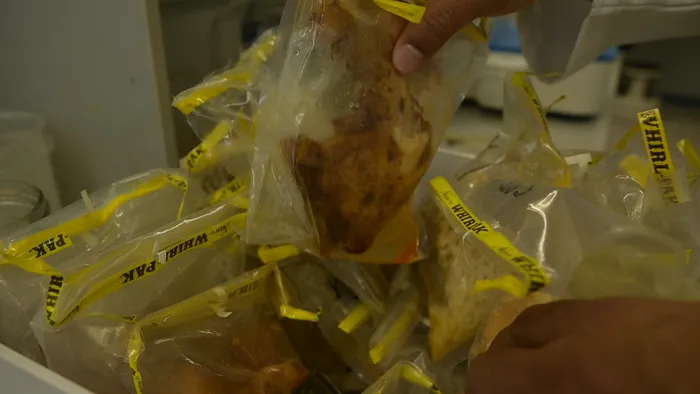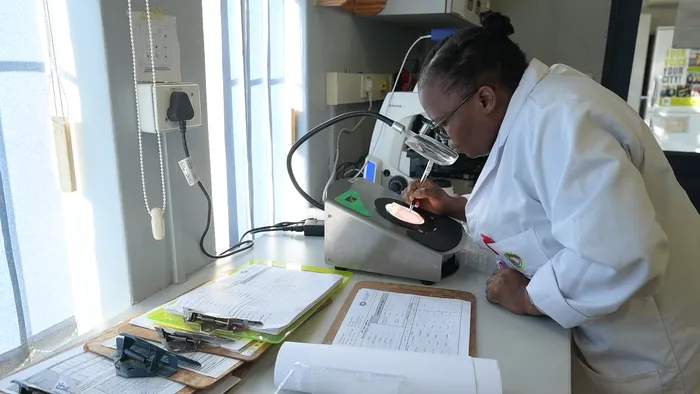Rise in foodborne illnesses in Cape Town

The City's Microbiology Laboratory tests thousands of samples annually to ensure that the food Capetonians eat, is safe.
Image: Supplied
THE City has seen a steady rise in reported foodborne illnesses over the last three years, with analysis from recent food samples showing non-compliant food safety standards of around 15%.
In just a 10-month period since July 2024, the City's laboratory received 4853 samples from Environmental Health Practitioners (EHPs) from a range of food handlers, which were subjected to 17 759 analyses. The results revealed an overall compliance rate of just over 80%, raising concerns about food safety standards.
Last year, a spike in foodborne illness cases claimed the lives of 22 people, including children and resulted in nearly 900 reported incidents over just a few months. The severity of the situation prompted the National Disaster Management Centre to classify it as a national disaster under Section 23 of the Disaster Management Act 57 of 2002.
With World Food Safety Day observed at the weekend, under the theme “Food Safety is Everyone’s Business”, officials said foodborne diseases are a growing public health concern.
The Professional Board for Dietetics and Nutrition, of the Health Professions Council of South Africa (HPCSA) noted that in South Africa, between October 2023 and February 2024, 1 399 cases of foodborne illness were reported. However, they said only severe outbreaks are typically reported, suggesting the real numbers are likely higher.
According to the City, from July 2022 to April 2025, they saw a steady increase in foodborne illness in Cape Town.
City Health's Food Microbiological Laboratory and Environmental Health Practitioners (EHPs) do bacterial sampling of food sold across the metropole.
“Tests are conducted generally on ready to eat products, dairy products and even sushi and baked goods - the laboratory also conducts testing of samples in cases of foodborne illnesses. EHPs collect samples from a range of food handling, production and processing environments, from manufacturers to retailers and takeaways, premises like ECDs and old age homes, and even informal traders and spaza shops.
“This testing is essential for identifying unhygienic conditions, poor food handling practices and possible contamination to prevent potential outbreaks. Over a 10-month period since July 2024, the laboratory received 4 853 samples that were subjected to 17 759 analyses. The sample results yielded an overall compliance rate of 84,55%,” the City said.

The Food Microbiological Laboratory provides the scientific evidence necessary to uphold food safety standards, support public health policies, and enable safe food trade and consumption.
Image: Supplied
Mayoral Committee Member for Community Services and Health, Francine Higham said the increase could be explained by the easing of Covid-19 restrictions which saw the return to normal food handling, dining, and social behaviours.
“This may have led to increased exposure to foodborne pathogens and a rebound in reported cases. The increase in notifications, especially in 2024, may also reflect better detection, reporting, and surveillance systems as public health operations normalised post-pandemic, contributing to improved surveillance and reporting. However, as the underreporting of foodborne illness in South Africa is known to be extensive, the actual incidence is likely to be far higher, which reinforces the need for regular testing of foodstuffs in the public domain," said Hingham.
The HPCSA explained that foodborne diseases result from consuming contaminated food, either during production, storage, or handling. Contaminants include bacteria, viruses, and environmental pollutants from water, soil, or air.
Common symptoms from foodborne illnesses include nausea, vomiting, and diarrhoea.
“Foodborne diseases are a growing public health concern. According to the World Health Organisation (2024), an estimated 600 million people worldwide, nearly 10% of the global population, fall ill due to foodborne diseases each year, with 420,000 fatalities, including 125,000 children under the age of five," the HPCSA said.
Pathogens most often linked to foodborne illnesses include campylobacter spp, clostridium perfringens, escherichia coli, listeria monocytogenes, norovirus and salmonella spp.
To prevent the spread of foodborne illnesses, the health regulator advised following the “golden rules for safe food preparation” which include cooking food thoroughly, eating cooked food immediately, storing food properly, separating raw and cooked foods, washing hands often and keeping kitchen surfaces clean.
Cape Times